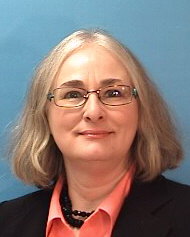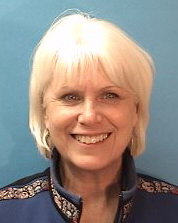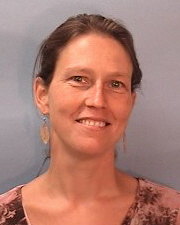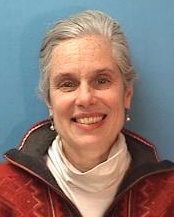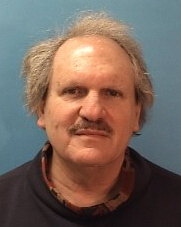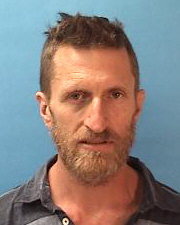Welcome to the Department of Humanities, Philosophy and Religion (HPR)
“Knowledge” and “World Views” courses together constitute the introductory or 100-level component of Humanities courses which are concerned with the most basic and general aspects of being human. These courses provide the background to the 200-level course on “Ethical Issues.”
The focus of study in Knowledge courses may be any appropriate field of knowledge. An appropriate field can be any serious body of knowledge relating to education, law, psychology, creativity, social behaviour, or other disciplines. Humanities courses approach each from an interdisciplinary perspective.
World views are understandings of reality shared by groups or societies defined or self-defined on the basis of common geography, economic status, gender, sexual orientation, ideology, history, religion, spirituality, political values, psychology, language, culture, (dis)ability, etc.
Ethical issues are understood to be questions of social and moral significance approached from a perspective that examines questions of valuing and the notions of good and bad. “Ethical Issues” courses are not meant to be introductions to ethical codes but rather to allow students to examine important questions of human morality as they relate to their respective fields of study and to apply an authentic critical thought process to the resolution of these issues.
Members of the Department
List of Faculty Members

Browne, Meredith
514-457-6610 ext. 5140
HA-105 Humanities, Philosophy, & Religion
meredith.brown@johnabbott.qc.ca
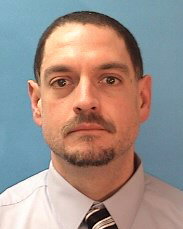
Daniel-Hughes, Brandon
514-457-6610 ext. 5982
HA-110
brandon.daniel-hughes@johnabbott.qc.ca
Brandon teaches religion and philosophy. His courses include World Religions, New Religious Movements, Religion, Body and Myth, Biblical Literacy, Religious Ethics and Ritual and Tradition. His research focuses on the American Pragmatic tradition, especially the work of Charles Sanders Peirce and the naturalist philosophical traditions that grow out of process and pragmatic thought.

Di Stefano, Paul
Coordinator, Peace Studies & Social Justice514-457-6610 ext. 5180
HA-210
paul.distefano@johnabbott.qc.ca
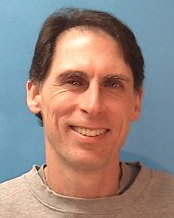
Laferrière, Eric
Chair HPR / Sports Studies Certificate Coordinator514-457-6610 ext. 5178
HA-101
eric.laferriere@johnabbott.qc.ca
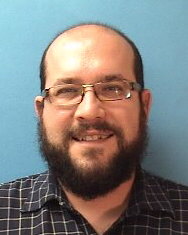
Maisonville, Derek
Coordinator, Indigenous Studies Certificate514-457-6610 ext. 5495
HA-113
derek.maisonville@johnabbott.qc.ca
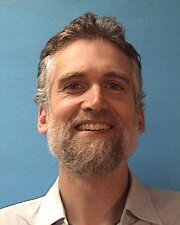
McGuire, Mark
514-457-6610 ext. 5166
HA-212
mark.mcguire@johnabbott.qc.ca
I have been teaching Humanities and religious studies courses at John Abbott since 2005 and was elected to the executive committee of the faculty union (JACFA) in 2012. I greatly value the warm and supportive community of faculty, staff and students. An experience with a Québec union delegation and our Venezuelan colleagues at the 2005 World Social Forum in Caracas had a significant impact on my teaching, engagement with, and general outlook on the world.
In 2006 I co-founded the campus sustainability initiative and sought to implement collaborative and participatory decision-making. Our latest project is the creation of a campus garden to reconnect to the food cycle, improve biodiversity and provide fresh produce to the campus food bank.
I make documentary films, write, read, cycle, garden, and spend as much time with my two children and partner as possible. A documentary film co-produced in Japan with Montreal filmmaker and friend Jean-Marc Abela (www.shugendonow.com) has been screened at festivals and conferences worldwide. We were honoured with the 2011 David W. Plath educational media award from the American Anthropology Association. I am currently working on a new documentary about the impacts of inherited trauma across generations.
In my classes I try to increase awareness about the far-reaching consequences of daily choices (our ways of consuming, thinking, and habits of being in the world) and inspire students to become more fully engaged citizens who take the responsibilities and rights of civic life more seriously.
COURSES
Documenting Myths: film, politics, citizenship Lost in Translation: Japan's hidden diversity À Table: Knowing What to Eat World Religions Integrating Activity in Arts and Culture (ALC program)
EDUCATION:
B.A. in English/film, Davidson College
M.A. in Asian Studies, Cornell
Ph.D. in Religious studies, Concordia

Riverin, Maude
Continuing Education - Humanities 514-457-6610 ext 5175
HA-209
maude.riverin@johnabbott.qc.ca
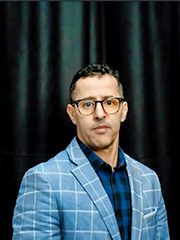
Tiflati, Hicham
514-457-6610 ext 5702
HA-209
hicham.tiflati@johnabbott.qc.ca
- Researcher and educator specializing in religious studies, secularism, citizenship, multiculturalism, and immigration.
- Consultant and advisor for films, series, and documentaries on cultural, religious, and linguistic sensitivities.
- Extensive fieldwork and publications on Education and Muslim issues.
- Islamic schooling and Muslim communities in North America.
- Radicalization and terrorism.
- Religion and secularism in modern societies.
- Multiculturalism, citizenship, immigration, and the nation state.
- Ph.D. in religious studies. L’Université du Québec á Montréal
- Master’s degree in special education, Johnson and Wales University
- Bachelor’s degree in Islamic law, al-Qarawiyyin University.
- Tiflati, H. (2020). Islamic Schooling and the Identities of Muslim Youth in Quebec. New York: Routledge, https://doi.org/10.4324/9781003048275
- Tiflati, H. (2016). Destination Da’esh. Pourquoi s’enrôlent-ils: Motifs, Facteurs et trajectoires de radicalisation. Verbatim, Presse de l’Université Laval.
- Chan, W. Y. A., Hirsch, S., & Tiflati, H. (2024). The Relevancy of Religious Literacy in Social Studies Curricula: Quebec’s CCQ as a Case Study. Religions, 15(9), 1046. https://doi.org/10.3390/rel15091046
- Ghosh, R., Tiflati, H., Dhali, H. H., Mahmut, D., & Chan, W. Y. A. (2023). Social-ecological portrait of two females from Montreal who joined ISIS. Contemporary Voices: St Andrews Journal of International Relations, 3(1), None. DOI: http://doi.org/10.15664/jtr.1626
- Parker, C., Chan, W. Y. A., & Tiflati, H (2023). Going Beyond Campus to Strengthen the Campus: Confronting Hate, Extremism, and Anti-Semitism through Restorative Justice and Peacebuilding Education. Power and Education.
- Tiflati, H. (2022). Muslim Youth Issues in North America: The Canadian Context. Oxford Research Encyclopedia. https://doi.org/10.1093/acrefore/9780199340378.013.871
- Amarasingam, A., Tiflati, H., & Walker, C, W. (2021). “Religious Literacy in Law: Anti-Muslim Initiatives in Quebec, the United States, and India,” in Nathan C. Walker and W. Y. Alice Chan, eds., “Religious Literacy Across the Professions,” Religion & Education 48, no. 1.
- Patrick, M., Chan, W. Y. A., Tiflati, H., & Reid, E. (2019). Religion and Secularism: Four myths and Bill 21. Canadian Race Relations Foundation. https://issuu.com/crrf-fcrr/docs/directions9dec_ccrl_fourmythsbill21
- Tiflati, H., Bloom, M. M., & Horgan, J, G. (2017). The Life and Death of an ISIS Telegram Channel: Navigating Terrorism’s New Preferred Platform. Terrorism and Political Violence.
- Patrick, M., Reid, E., Chan, W. Y. A., & Tiflati, H. (2025). Religious literacy in action: Five years of engagement in Canada. In MisirHiralall, S.D., & Soules, K.E. (Eds.), Religious literacies in educational contexts (1st ed.). Routledge. https://doi.org/10.4324/9781003536574
- Chan. Y. A; Amarasingam, A; Couture, A; Wijesekera, D; Tiflati, H;. Matemba, Y. (2023). When Discussion of Religion is Not Encouraged -- Don't Ask, Don't Tel. in Jo Fraser-Pearce (Anthology Editor), James W. Fraser (Anthology Editor), The Bloomsbury Handbook of Schools and Religion. Bloomsbury Publishing
- Tiflati, H., & Djaout, A. (2022). Researching Montreal's Muslim community: Reflections from two native researchers. in Barras Amélie Selby J. A. & Adrian M. (2022). Producing islam(s) in canada : on knowledge positionality and politics. University of Toronto Press. Retrieved December 14 2022 from https://search.ebscohost.com/login.aspx?direct=true&scope=site&db=nlebk&db=nlabk&AN=3115125
- Shaik, M., Tiflati, H., Gurski, P., & Amarasingam, A. (2020). Turning the page on extremism: Deradicalization in the North American context. In Hansen, S. J., & Lid, S. (eds). Routledge handbook of deradicalization and disengagement. Abingdon, Oxon New York, NY Routledge
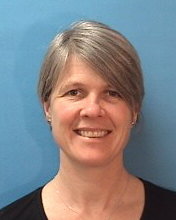
Woodrow, Anna
514-457-6610 ext. 5137
HA-107 Humanities, Philosophy, & Religion
anna.woodrow@johnabbott.qc.ca
Courses
Humanities, as part of the general education component, is intended to promote personal and social development and to give students a foundation that will help them understand their roles in contemporary society as members of the work force, citizens and individuals. The three sets of objectives and standards in humanities propose common frameworks for understanding the experiences, ideas and values of humankind and their diversity. They are aimed at developing critical thinking, reinforcing the ancillary skills involved in careful reading, organized writing, and well-developed oral presentations, and, where appropriate, improving media and computer literacy. Once students have mastered the three-stage process of analysis, synthesis and evaluation, they will be able to reflect in an informed manner and to communicate what they have learned in an organized and coherent fashion.
For a detailed course offering, please visit the General Education (Humanities) section of the Program Planner.
Supplemental Information
All cegep-level programs aim to “educate students to live responsibly in society”, “help students integrate cultural knowledge into their studies”, and “help students master language as a tool for thought, communication and openness to the world”. This involves the development of numerous skills, or “competencies”, such as problem-solving abilities, the use of creativity, the ability to adapt to new situations, the ability to exercise a sense of responsibility, and to communicate. According to the ministerial devis, students who have achieved the general education objectives in humanities:
– will be able to demonstrate their knowledge of the following:
- the main concepts, limits and uses of a form of knowledge including significant historical reference points
- the main concepts, limits and uses of a world view
- the nature and organization of the basic elements of an ethical question
- methods for coherent integration of concepts and the formulation and synthesis of ideas
- the importance and practice of adequately substantiated argumentation, written and oral
– will be able to demonstrate their ability to do the following:
- describe, explain and organize the main elements, ideas, values and implications of a world view in a coherent fashion
- compare world views
- recognize the basic elements in a specific example of the organization, transmission, and use of knowledge
- recognize forms of creativity and original thought
- define the dimensions, limits and uses of knowledge in appropriate historical contexts
- identify, organize and synthesize the salient elements of a particular example of knowledge
- situate important ethical and social issues in their appropriate historical and intellectual contexts
- explain, analyze and debate ethical issues in a personal and professional context
- utilize the multiple strategies of critical thinking
– will be encouraged to develop the following attitudes:
- openness to diversity and pluralism
- awareness of the limits of knowledge claims, world views and ethical perspectives
- respect for the points of view of others
- empathy and acceptance of others
- concern for global issues
- determination to continue learning


